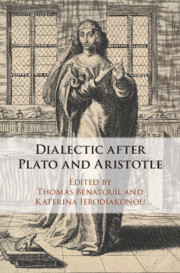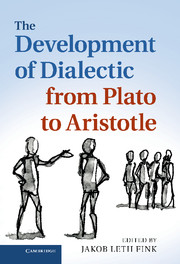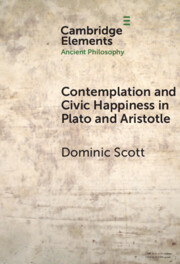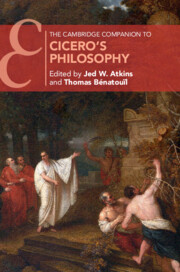Dialectic after Plato and Aristotle
Ancient dialectic started as an art of refutation and evolved into a science akin to our logic, grammar and linguistics. Scholars of ancient philosophy have traditionally focused on Plato's and Aristotle's dialectic without paying much attention to the diverse conceptions and uses of dialectic presented by philosophers after the classical period. To bridge this gap, this volume aims at a comprehensive understanding of the competing Hellenistic and Imperial definitions of dialectic and their connections with those of the classical period. It starts from the Megaric school of the fourth century BCE and the early Peripatetics, via Epicurus, the Stoics, the Academic sceptics and Cicero, to Sextus Empiricus and Galen in the second century CE. The philosophical foundations and various uses of dialectic are closely analysed and systematically examined together with the numerous objections that were raised against them.
- An international team of scholars study the conceptions of ancient dialectic in the Hellenistic and Imperial periods
- Analyses ancient texts that have not yet been studied systematically
- The book will appeal to those interested in the development of ancient epistemology and logic
Product details
January 2019Hardback
9781108471909
400 pages
235 × 158 × 25 mm
0.73kg
Available
Table of Contents
- Introduction: dialectics in dialogue Thomas Bénatouïl
- 1. Megara and dialectic James Allen
- 2. Dialectic in the early Peripatos Paolo Crivelli
- 3. Epicurus on dialectic David Sedley
- 4. Dialectic as a subpart of stoic philosophy Katerina Ierodiakonou
- 5. Stoic dialectic and its objects Jean-Baptiste Gourinat
- 6. Dialectic in the Hellenistic Academy Luca Castagnoli
- 7. Pithana and Probabilia Tobias Reinhardt
- 8. Terminology and practice of dialectic in Cicero's letters Sophie Aubert-Baillot
- 9. The sceptic's modes of argumentation Benjamin Morison
- 10. Galen and middle Platonists on dialectic and knowledge Riccardo Chiaradonna.





